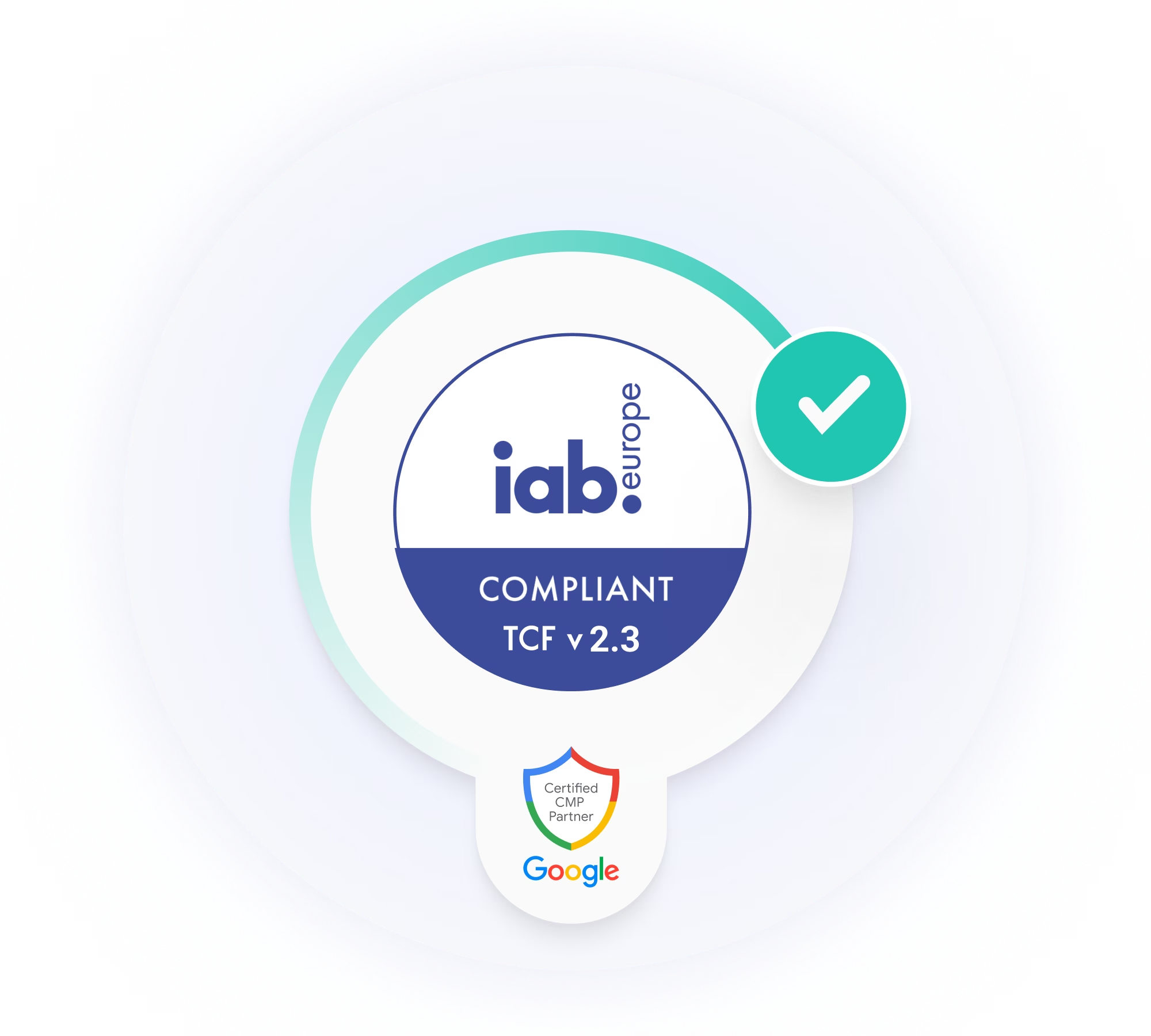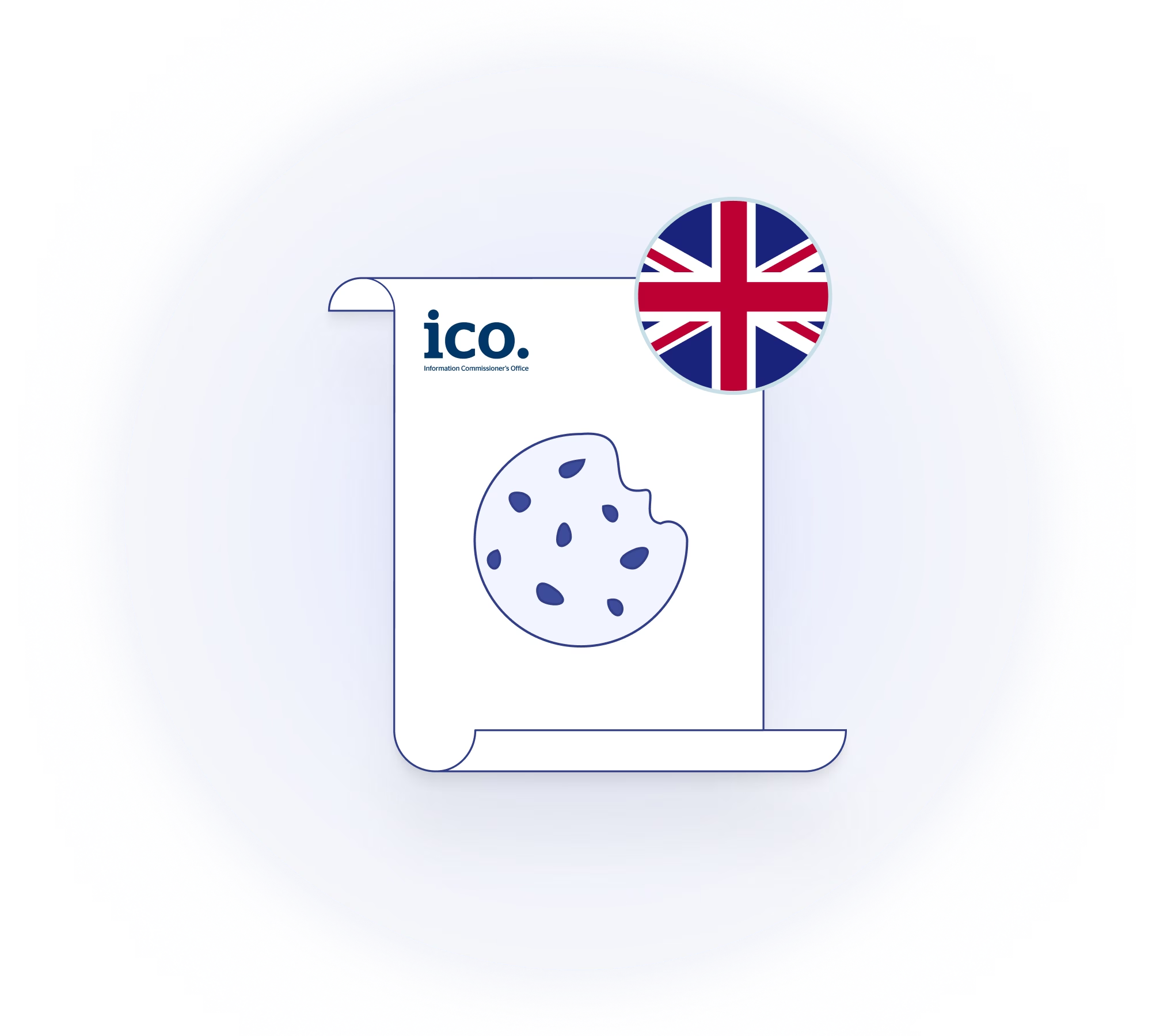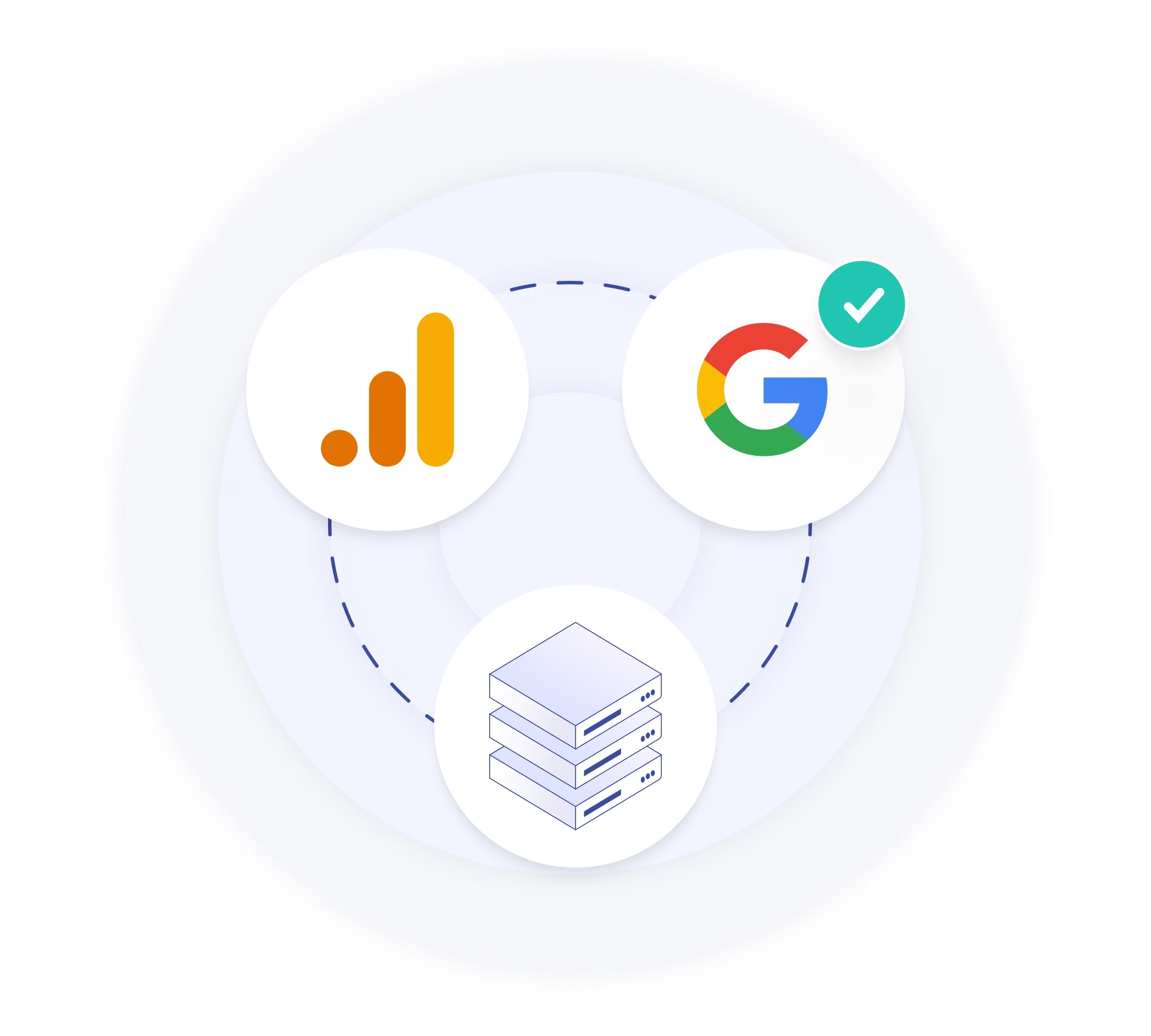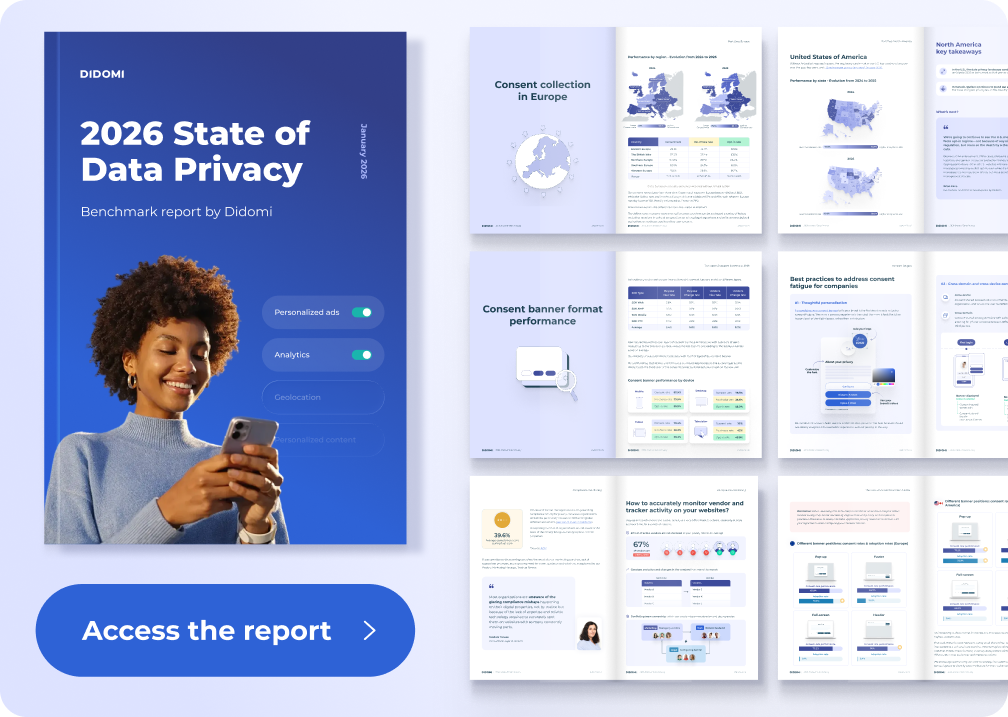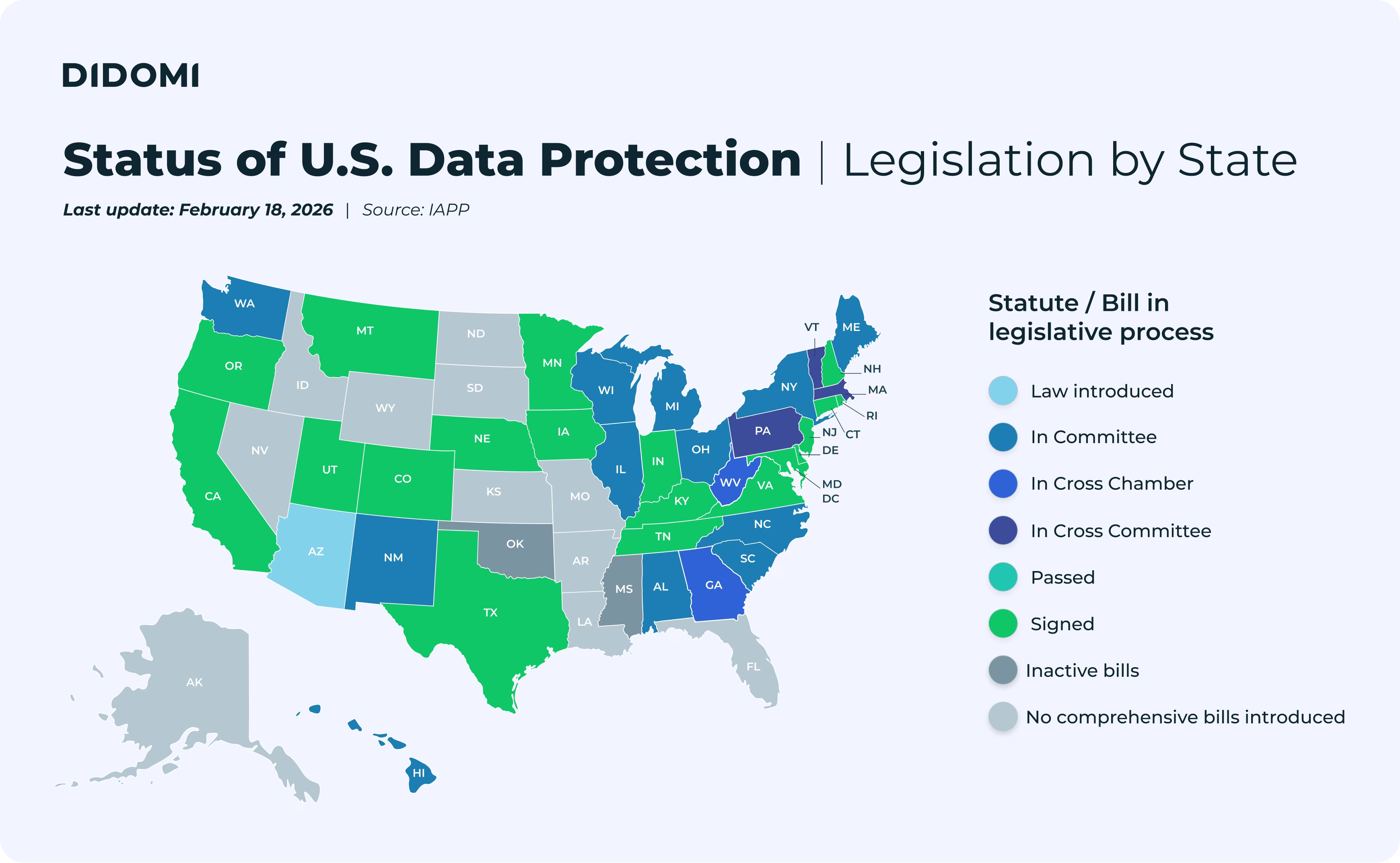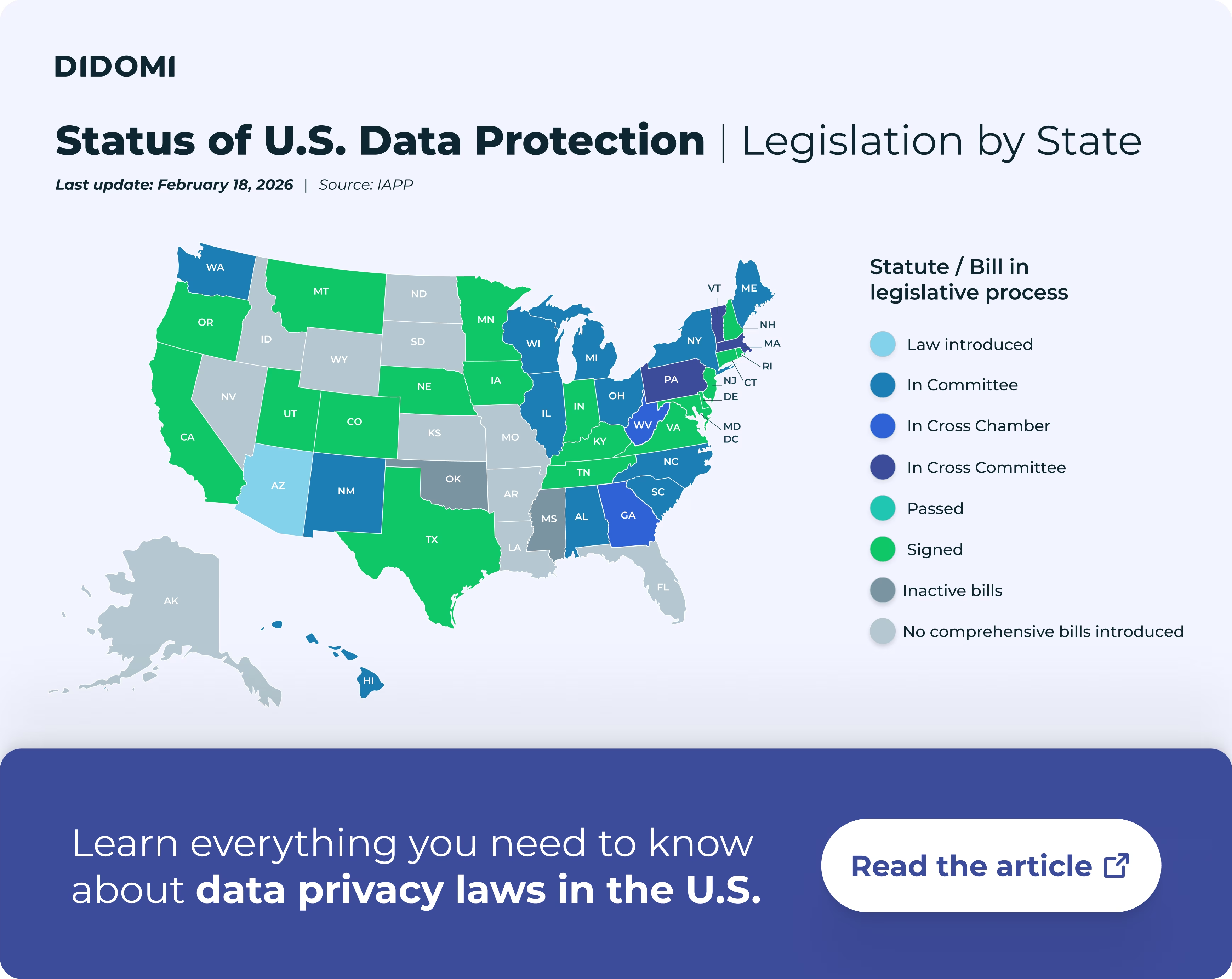This article is written by Cassandre Buono Vidal, Senior Data Marketing Consultant, and Guillaume Sinnaeve, Head of Expertise and innovation at Elevate. Would you also like to share your expertise on our blog? Contact us at blog(at)didomi.io
At Elevate, a consulting firm dedicated to data and AI, we co-develop concrete solutions to tackle the very real challenges faced by our clients and partners.
This is why the experts in our AI Lab create pragmatic automation solutions that can be installed in your existing systems and activated immediately. The goals: improving business processes, reducing operational workload, and enhancing team performance.
Didomi x Elevate: A partnership focused on impact
With Didomi, we have built a robust and proven automation solution based on the power of their APIs and the agility of n8n, an open-source automation platform.
The aim of this partnership is to enable our shared clients to automate end-to-end consent management, reduce manual tasks, ensure compliance, and free teams from low-value operational work.
Immediate benefits for operational teams include:
- Real-time retrieval of user consents: Thanks to Didomi’s API, we dynamically access users’ relational and regulatory consents to feed your segmentation systems with the freshest possible data.
- Smooth synchronization with business tools: Unified consents are dynamically propagated across your marketing tools, CDP, CRM, Data Warehouse, or Data Lake, ensuring both marketing and regulatory robustness.
- Automated triggering of personalized marketing actions: Based on the consents collected and the scenarios you define (cart abandonment, upsell or cross-sell campaigns, satisfaction surveys, etc.), actions can be automatically activated to maximize engagement and conversion.
- Data interoperability across tools: Centralized consents can be leveraged in your analytics and data visualization platforms. This analytical continuity makes it possible to cross consent information with your key performance indicators and optimize strategic decisions.
- Accelerated deployment of CMPs at scale: Thanks to centralized management, you can configure and roll out consent banners simultaneously across multiple domains, countries, or brands—significantly reducing implementation time and ensuring consistent compliance.
Our integration simplifies and automates consent management without requiring complex development. It provides a flexible foundation for structuring data exchanges, detecting anomalies, or deploying configurations across multiple environments.
Below are concrete examples to illustrate what’s possible. This combination can be adapted to many business needs, depending on the tools in place, compliance requirements, or specific use cases of each organization.
Automating consent management: Example use cases
In this section, we present three concrete, actionable consent management automation use cases that can be implemented by our teams, and the benefits they offer.
Use case 1: Automatic, recurring export of the vendor list
Here, the objective is to automate the monthly export of your active vendor list, archive it on Google Drive, and automatically detect new or removed vendors via email alerts.
Challenge: For an improved control the vendors present on your site, you may need to identify the addition of a new provider or, conversely, the removal of another. Didomi automatically updates the vendor list (TCF) to ensure users are as well informed as possible, but you may miss the addition of a new vendor.
Once a month (frequency is customizable if necessayr), this automation allows you to:
- Extract the list of active partners on your site.
- Archive this export in Google Drive (or another tool) for historical tracking.
- Compare this list with the previous version.
- Receive notifications whenever a difference is identified.
For this example, we are using the Google software suite (also possible using Microsoft solutions). Alerts can be sent to tools such as Slack, Microsoft Teams, or Google Chat.
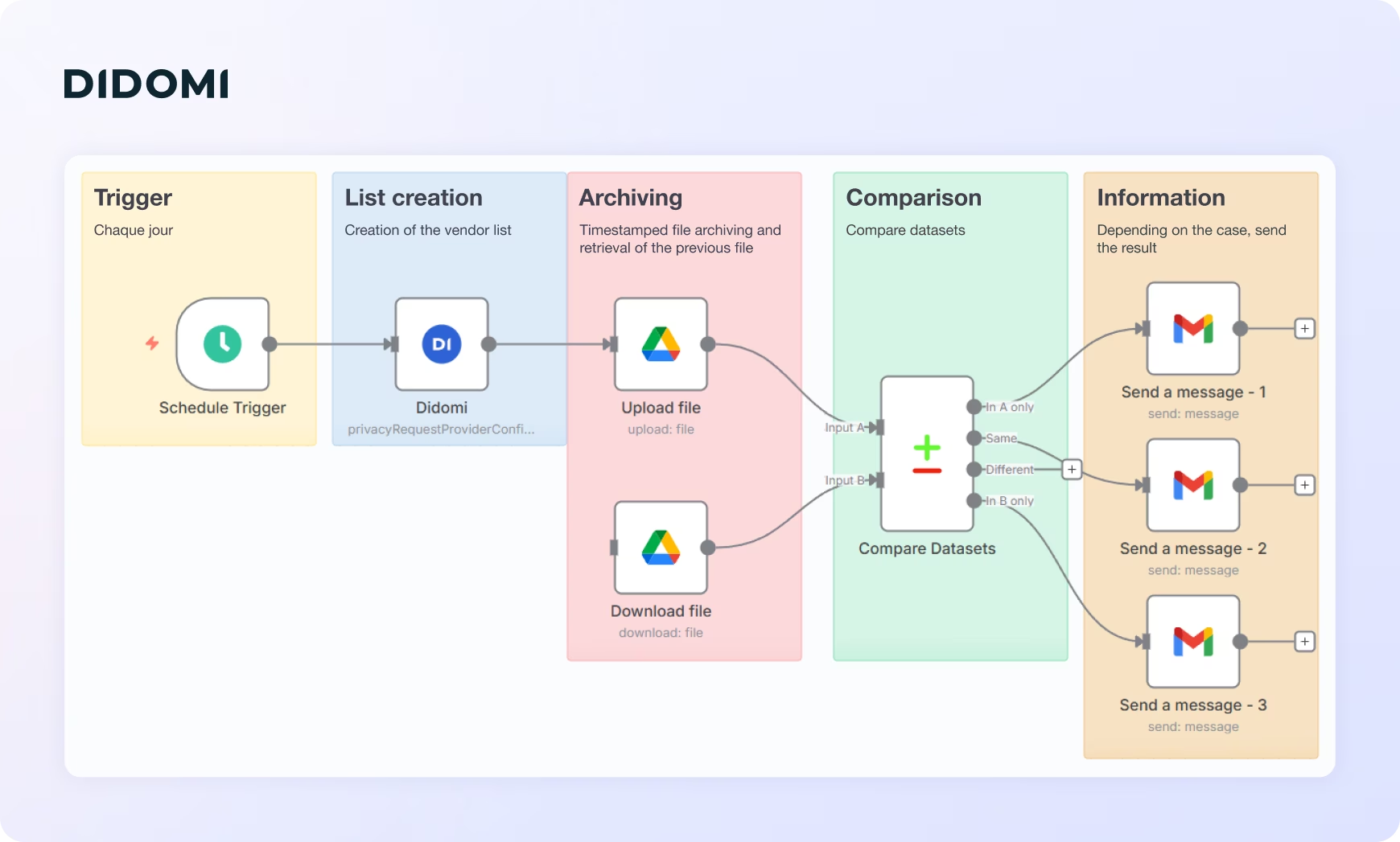
Steps of the workflow :
- Trigger: Scheduled once a day at a fixed time.
- List creation: Didomi’s API generates the vendor list of the day (IAB’s GVL updates weekly; the “active list” refers to what’s in place).
- Archiving: The generated list is stored in Google Drive; the previous version is retrieved.
- Comparison: Both files are compared. Outcomes: a new vendor, a vendor removed, or no changes.
- Notification: Based on the scenario, a message with the details is sent via Gmail.
Use case 2: Consent banner automation
For this use case, the goal is to automate several banners, publish them, and test their compliance.
Challenge: Managing different websites with their own consent banners, putting them into production, and verifying compliance.
This automation lets you:
- Create banners from a list of sites (with information like regulation, site, brand logo, organization ID…).
- Automatically retrieve SDKs and opening links.
- Automatically trigger compliance verification cycles and receive results.
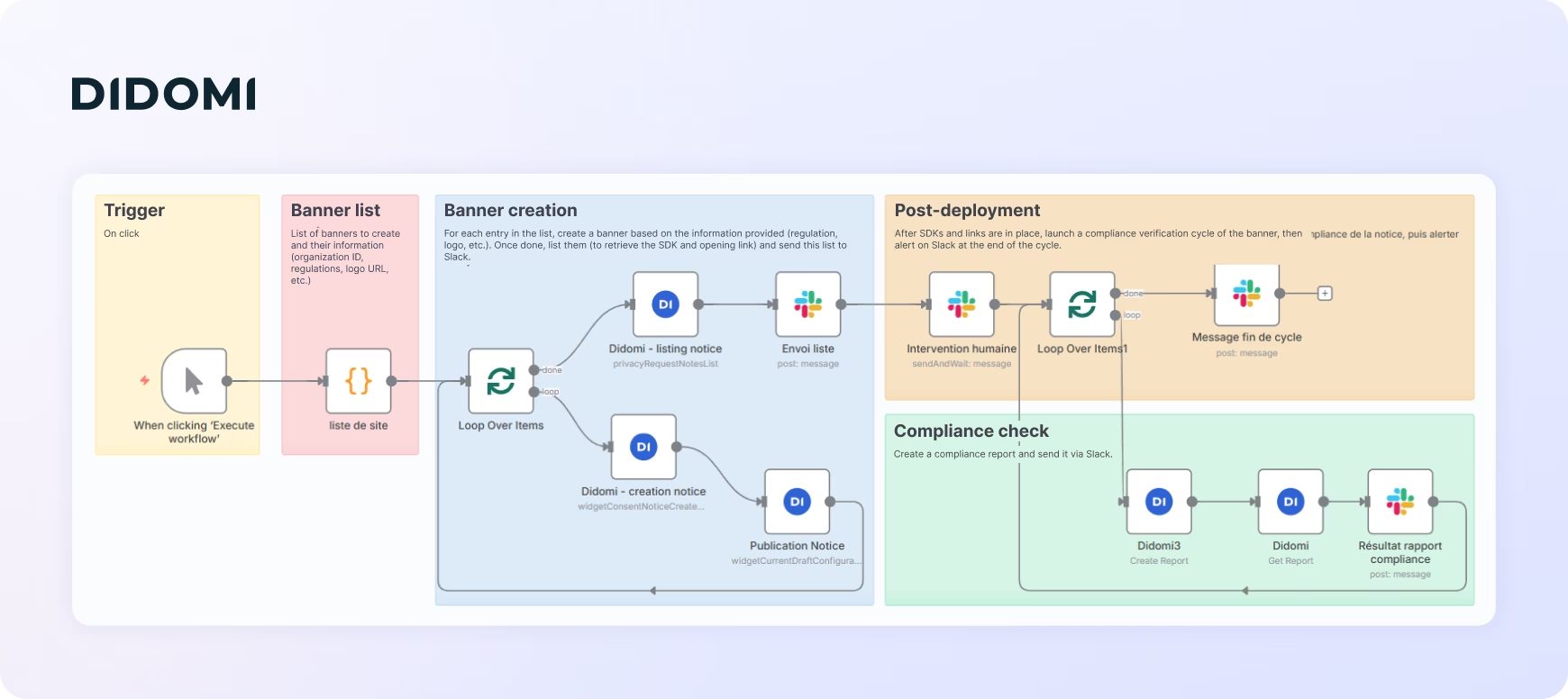
Steps of the workflow:
- Trigger: Manual (user clicks).
- Banner list: List all banners to be created, including organization ID, regulation (GDPR, CCPA…), logo URL, etc.
- Creation & publication: For each listed item, a banner is created and published. Then, the SDK and opening links are extracted and shared with technical teams (e.g., via Slack).
- Post-deployment: Once implemented, a predefined Slack message triggers the compliance check loop. A final message confirms completion.
- Compliance check: A report is generated for each banner and sent to Slack.
Use case 3: Consent monitoring
The objective of this third automation is to allow companies to automatically spot anomalies or inconsistencies in consent reporting.
Challenge: Monitoring consent banner usage to quickly detect anomalies (bots, technical issues on browsers, etc.).
This automation lets you:
- Generate a report at a chosen frequency (e.g., daily).
- Format and store your data in the tool of your choice (e.g., MongoDB).
- Compare the new report to previous ones (e.g., via ChatGPT) to detect anomalies.
- Add alerts in your messaging tool (e.g., Slack) once anomalies are detected.

Steps of the workflow:
- Trigger: Scheduled once a day at a fixed time.
- Report generation: Didomi’s API retrieves a pre-built report (custom report or overview), reformats it for MongoDB (or another database), and stores it.
- AI analysis: An AI agent compares the new report with previous ones to detect anomalies. It qualifies anomalies as atypical (valid but unusual) or erroneous (invalid values). With more history, the agent’s analysis improves.
- Slack confirmation: After analysis, the agent sends a Slack message with the results.
Comprehensive support, from implementation to business impact
Our solution is not just a technological layer. Elevate supports you end-to-end with:
- Functional and business expertise to maximize the value of consents collected through Didomi.
- Rapid, tailored deployment within your existing workflows, including creation, testing, and maintenance of new workflows.
- Custom automations aligned with your use cases, KPIs, ambitions, and privacy maturity.
At Elevate, we develop solutions where automation, ethics, and performance converge. Our research approach is intentionally applied: every development is designed to address real-world challenges.
This project with Didomi perfectly illustrates our ambition: putting AI at the service of teams’ daily work, delivering visible, measurable, and sustainable results. By integrating innovation into business realities, we create solutions that are not only high-performing but also adapted to specific environments.
Learn more at https://www.elevate-agency.com/

.svg)





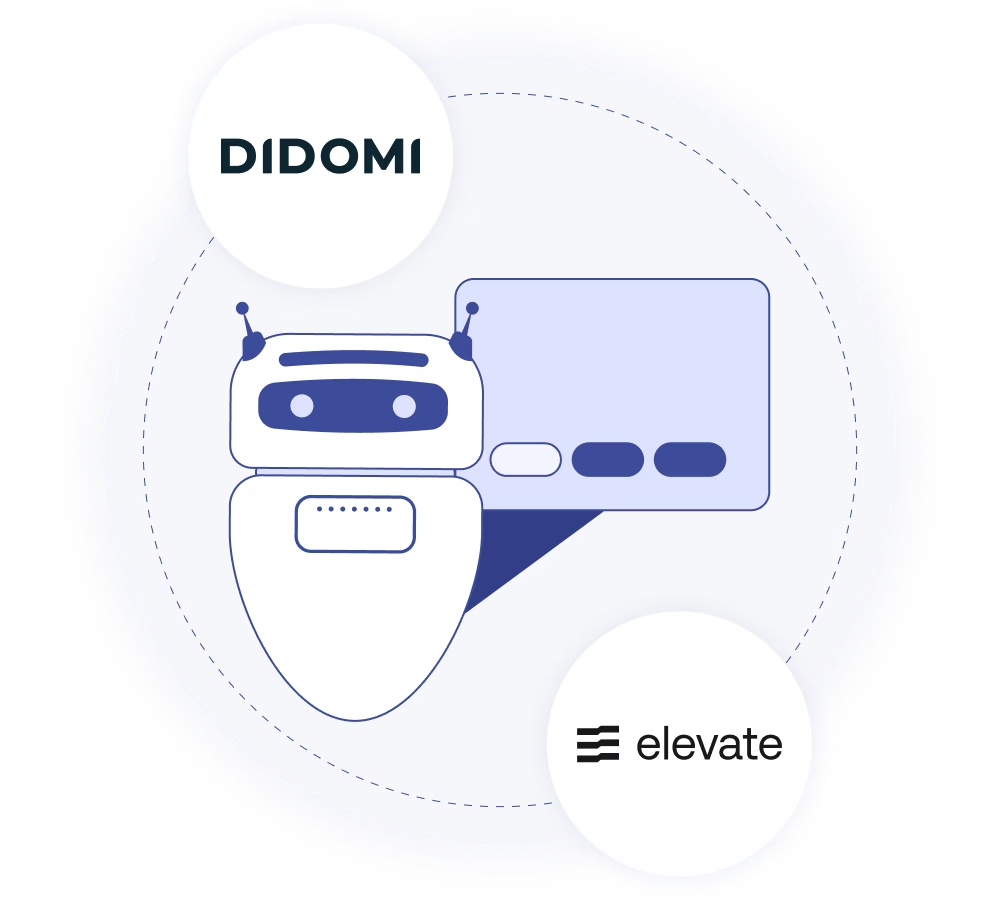





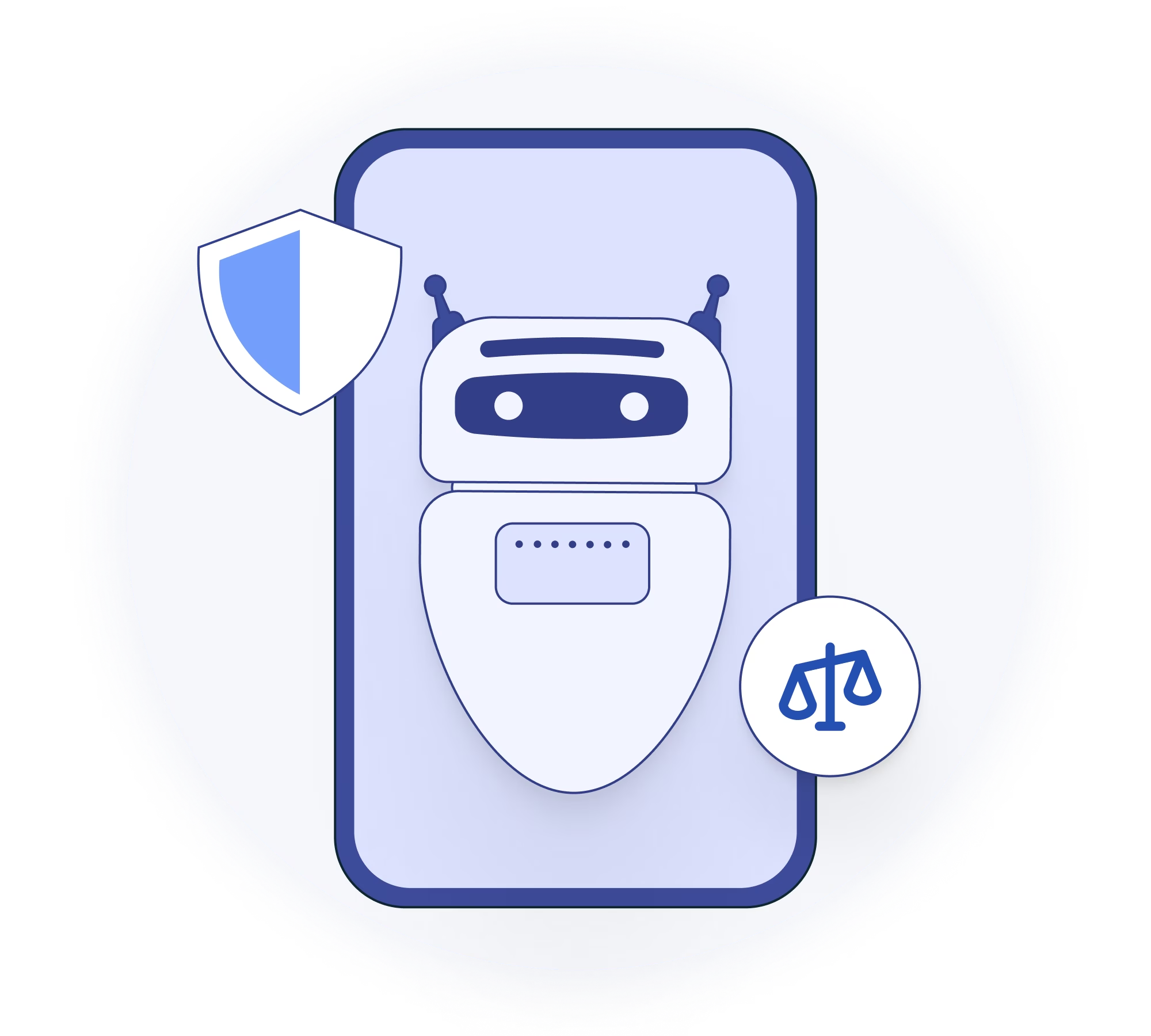
.png)
